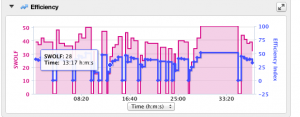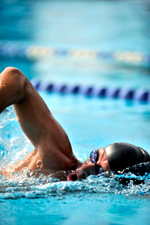One of the best things about running is that you only needed a pair of shoes to hit the road and exercise. However, nowadays there are several popular gadgets that help you track your training and progress, provide valuable data such as heart rate, pace, distance, etc. and entertain you while you are running (almost indispensable for those long run training marathon sessions).
We are fans of using gadgets, it is certainly helpful to monitor your performance, and with it train more efficiently.
As with any device, there might be that time when you needed it the most and the gadget for some unknown reason crashes on you. Since we began with Where do I run, 6 months ago, our staff has participated in several races from 5Ks to triathlons to marathons. In this relatively short time, 2 of our staff members have faced the unfortunate experience of having their devices “freezing” in the midst of a race. They were using different brand devices and in different conditions (triathlon in Miami and 15K in Bogota).
When this happened to them, the initial reaction went from surprise to frustration; from anger to acceptance. So based on these experiences, and some research, we have came up with a list to help you better manage this situation.
- Manufacturers have authorized technicians that can provide maintenance to your device. It’s not a bad idea to have your device “tuned-up”; try doing this while you are not in the middle of a training program;
- Rinse the devices that are in contact with your body with warm water after training; this will avoid sulfur-containing compounds from sweat adhering to the equipment;
- Check the battery a couple of days before the race; change or recharge it if needed;
- Try running once in a while without any gadgets, so you get used to reading your body;
- If the device crashed on you during a race:
- React quickly
- Move to the side, so you don’t block the rest of competitors;
- Try to restart it, though don’t waste more than 1 minute;
- If it doesn’t work, move on, forget about the situation and focus on getting signals directly from your body; this combined with mile/kilometer marks and pacers should help you run very close to your desired pace.
- Complete the race, ultimately, that is why you signed-up and trained in the first place.
We hope you don’t encounter this situation, but if you do, it’s not the end of the world, and you will be satisfied anyhow once you cross the finish line, you might be even pleasantly surprised with your time.



